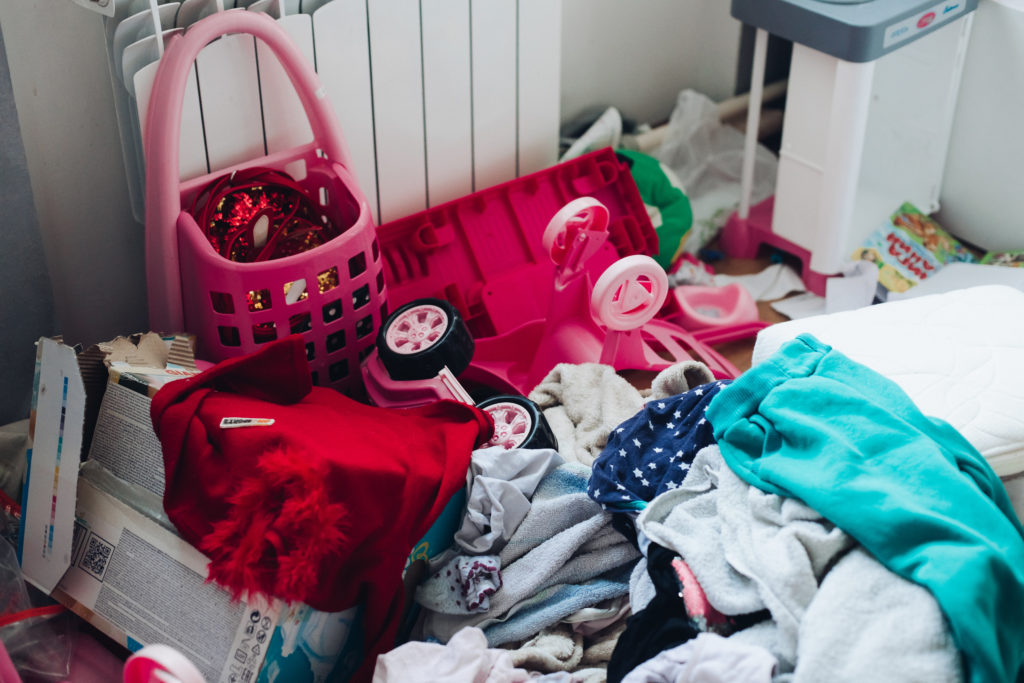“A time to search and a time to give up, a time to keep and a time to throw away,” Ecclesiastes 3:6
With all the quarantining, social distancing, and bad weather, I have been hunkered down trying to stay safe and warm. Recently, I became engrossed in a Netflix documentary titled “The Minimalist.” The documentary was created by two long-time friends, Ryan Nicodemus and Joshua Fields Millburn, who met in the fifth grade. In this documentary, both Joshua and Ryan share how they became minimalist and their desire to encourage others on how to add value to their lives by letting go of stuff, in turn gaining more time, more meaningful relationships, more contributions, and contentment.
Joshua shares how he achieved everything he ever wanted. He was the youngest director of his company’s 140-year history; owned luxury cars, designer clothes, and a home in the suburbs. He recognized that when we get more space, we fill it with more things and as we get more things, we turn to storage facilities, garages, attics, etc. At the age of 28, Joshua had an epiphany after his mother passed away and his marriage ended in the same month. It all started with one question—How might my life be better with less? By answering that question, he was able to identify the purpose of minimalism. He admitted that he was so focused on success and achievement (especially on the accumulation of stuff) that he began to ask himself—what is essential and what is adding value to my life? He realized if he simplified his life, he would have more time for his health, relationships, creativity, finances, and would be able to contribute beyond himself in a meaningful way. Joshua decided to get rid of one material possession from his life for one month; however, he got rid of way more than 30 items in those 30 days. He retained only the things that added value to his life.
Joshua introduced Ryan to minimalism. Ryan acknowledged that he tried to fill a void in his life with stuff. He thought owning a bunch of material possessions was happiness. He needed to clear the clutter and make room for life’s most important things. Ryan, with Joshua’s assistance, packed up all of his belongings as if he was moving and then he would only unpack the items he would need for the next three weeks. After three weeks, 80 percent of Ryan’s belongings remained in boxes. He started donating the stuff and only retained the things that added value.
After watching this documentary, I was on a mission to get rid of anything that I was not using. When I moved a couple of years ago, I did a pretty good job of discarding many things that I did not need or which didn’t bring value to my life; however, I went through every closet and my pantry tossing anything that I had not used in a long time and would not be using. It was liberating. I was just holding on to some things because I may use it one day. I loaded up the car and dropped it off at Goodwill.
In an article titled, “The Benefits of Minimalism: 7 Habits Reasons to Declutter Your Life,” Mel Johnson offers the lessons she learned while decluttering her space:
- Mindful purchasing. A thorough decluttering session teaches you to be more mindful of a purchase and analyze its importance before spending your hard-earned money.
- Money saved from unnecessary and frivolous purchases. Restricting purchases to only necessary items has the added benefit of saving cash.
- Time saved by being able to find things more easily. Reducing your possessions allows you to find items more quickly, saving precious time.
- Space saved from owning less. The fewer possessions you own, the less storage space you need.
- Happier outlook. Surrounding yourself with items you love and displaying only the items most valuable to you will make you feel happier.
- Quicker and easier to clean and tidy. The fewer possessions you have, the neater your house will be and easier it will be to keep clean.
- More freedom. As you begin to detach from material possessions and place more importance on experiences rather than things, you will sense a feeling of lightness and freedom, which can become addictive.
Such as life—we hold on to things because we may use it one day or it may get better one day. As we begin to let go of the material possessions, we may also find ourselves letting go of bad habits, toxic relationships, and past hurts. As both Ryan and Joshua asked the question—what is essential and what is adding value to your life? Just a little something to ponder.
Wishing you all a Happy Valentine’s Day weekend! Stay safe and warm.
If you are interested in a free 30-min coaching session, book an appointment at calendly.com/new-wine-consulting.


We recently had our home completely renovated and I purged all the just “look at me stuff”; it served no purpose but to look at! These useless items were consuming too much of my “valuable” time dusting.